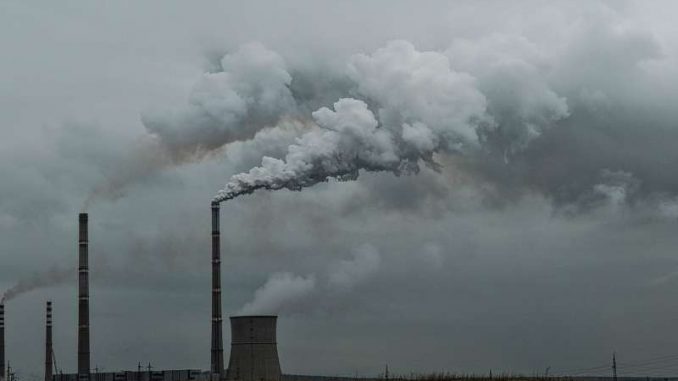
In News
Gujarat became the fist state in the world to become a market for particulate matter emissions.
In-Detail
- Emissions trading is not a new concept. Under the Carbon development Mechanism allowed by Kyoto Protocol, carbon emissions are allowed to trade in the form of carbon credits.
- Entities that reduce carbon emissions will get carbon credits and they can trade them in the market.
- European Union has Emission Trading system for gas emissions, and India has a mechanism to trade energy units.
- But, so far there is no trading mechanism for particulate matter (PM) emissions and Gujarat became the first government to launch a scheme promoting PM trade.
The Scheme
- The scheme, known as the Emission Trading Scheme (ETS) is a regulatory tool to check PM emissions and an incentive for industries as it reduces compliance costs.
- It is launched in Surat.
- The Gujarat Pollution Control Board (GPCB) will put a cap on emission load on all industries.
- Various industries can buy and sell the ability to emit PM by trading permits (in kilograms) under the cap.
- This is why ETS is also known as the cap-and-trade market.
Participating Industries
- So far, 155 industries have joined the ETS, out of which 88 started trading.
- Emission permits worth Rs. 2.78 lakh were traded.
- The participating industries are from sectors like textiles, sugar, and chemicals. They are spread over an area of 50-30 sq km in and around Surat.
- Due to their reliance on coal or baggage for energy, these industries release a high amount of ash.
- The GPCB selected the participants based on the size of their chimney. Those with a chimney diameter of 24 inches or more are selected.
Why Surat?
- When the project was conceptualised in 2013, the air quality of Surat was deteriorated.
- The PM 10 levels were at 89 micrograms per cubic metre.
- By 2018, this increased to 189 micrograms per cubic metre.
- Also, Surat was chose because the industrial association there agreed to take up the pilot project.
- With many of the industries having installed continuous emission monitoring systems, that allows for estimating the mass of particulate matter being released, made things easier.
The Trading
- The GPCB puts the cap at 280 tonnes. At the beginning of every one-month compliance period, the pollution board gives permits for 80 per cent of the 280 tonnes for free and are distributed among all the participants.
- The rest 20% permits are auctioned at a floor price of Rs. 5 per kilogram.
- Participating units must buy and sell the permits among each other during the period.
- The price per permit is not allowed to cross Rs. 100 per kilogram and sell below Rs. 5 per kilogram. After a review, the price will be adjusted.
The Auctioning
- Permit auctions are carried out on the ETS-platform hosted by the National Commodities and Derivatives Exchange e-Markets Limited (NeML).
- Participants must register a trading account with the NeML. The accounts are linked to the bank accounts of the participants and they can check their transactions.
- There are two types of auctions: first, on every Tuesday, the week’s permit price is discovered through bidding by participating members. Second, there is a continuous market between Wednesday to Monday (2 pm to 5 pm) where members buy and sell permits whose prices were fixed on Tuesday.
How ETS Helps in Emission Reduction?
- Currently, the industries in the region are emitting at 362 tonnes per month.
- The cap of 280 tonnes per month is a huge reduction. Authorities are planning to reduce the cap further in the future.
- The permits are not to encourage industries to continue polluting. They are in fact buying some time for the industries to install efficient air pollution control measures.
- Participants will realise that trading permits will become costly eventually and will invest in APCM.
Will There Be Punitive Action for Non-Compliance?
- The units will be declared compliant or non-compliant based on the permits they hold at the end of the period.
- An environmental damage compensation of Rs. 200/kg will be charged for those emitting more than their permit holdings.
- The amount will be deducted from the environmental damage deposit that each participating member has to submit before joining the scheme.
- It is Rs. 2 lakh for small units, Rs. 3 lakh for medium units and Rs. 10 lakhs for large units.
- After any deduction, the unit has to to pay to fill the shortfall in the deposit.
- To avoid permits hoarding, the scheme allows for holding only 1.5 times the initial permits allocated or 3 per cent of the market cap for a period. Also, no unit can sell more than 90 percent of its initial allocation.
Conclusion
The scheme can be replicated in other parts of the country only if all the industrial units have emissions monitoring systems in place.

Leave a Reply
You must be logged in to post a comment.